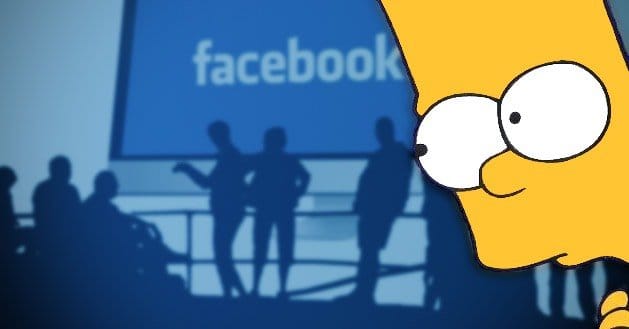 Written by ContentPowered.com
Written by ContentPowered.com
Facebook marketing has been a staple for years now, but several factors came to a head in 2014 that have marketers questioning Facebook’s relevance. Combine the low organic reach, Facebook’s blatant cash grabs from marketers, multiple privacy snafus and the increasing difficulty establishing a Facebook foothold, and you begin to wonder.
A Decline in Facebook Population
Perhaps one of the most deadly trends for Facebook’s future in marketing is the predicted fall of its popularity. Like Myspace before it, it has lived a long and full life, as far as Internet properties are concerned. Already, it’s beginning to decline. Princeton performed a study that shows that Facebook is entering a widespread abandonment phase, which will leave the site with far, far fewer potential advertising targets. As many as 80% of the current userbase is predicted to abandon the site by 2017.
What this means for marketers is that everything will get less and less effective. IF you have a following of 10,000 people, and you reach 2.5% of them with your posts, you’re already struggling to make an impact. If 8,000 of those people abandon their accounts, you’re going to have a very hard time reaching anyone at all.
This decline won’t be immediate and abrupt. Your audience sizes shouldn’t decrease too much in 2015, and may even increase if you target the sorts of users who will stick around on the platform. Even Myspace has a modern following; Facebook will never completely die.
Issues of Organic Reach
One of the biggest hurdles to success on Facebook in this past year has been Facebook’s limitations on organic reach. Their tailored sorting algorithm has put less weight on business page posts, making it harder and harder for businesses to actually connect with their fans. Some companies report reach as low as 2.5%, despite Facebook claiming a much higher possible reach.
How will Facebook adapt in 2015? Some marketers, disgusted by the transparent cash grab that lurks behind paid reach, have or will abandon the platform. Facebook may be offered a choice; increase organic reach or face an exodus of business traffic. It’s anyone’s guess which way they will go.
It’s likely that this issue will come to a head in 2015, primarily as a tipping point. If too many marketers abandon the platform, Facebook may begin to suffer. The biggest factor may be whether or not a suitable replacement appears. Ello has recently opened up and exploded onto the scene, but their stance regarding privacy and an ad-free experience makes it potentially difficult for marketers to use.
Facebook Pay to Play
Beginning with the boost post button and continuing through the decline in organic reach, Facebook has been steadily pushing marketers to spend more and more money on advertising to reach the same audience they have in the past. Some marketers take this in stride, recognizing that Facebook is still a cheaper option than many widespread alternatives. Others insist on a truly free marketing experience through social media and abandon the platform altogether. For Facebook’s benefit, the latter group is rather small.
Throughout 2014, Facebook has maintained a powerful position as a marketing necessity. Expenses have gone up to keep on a level playing field, but it’s still possible to grow and succeed through the platform. Facebook’s ad revenue has gone up, not down. This growth may stabilize in 2015, or it may continue; only time will tell.
The Older Audience
The biggest shift occurring on Facebook is the overall age and demographics of the audience. For a while, Facebook was the go-to platform to reach teenagers and young adults. Over time, older generations have come in to the site. Parents, then grandparents, create and operate their own accounts.
As with anything teen-related, once the parents get involved, it’s over. The teenage exodus has been well in progress for years. The next big platform to attract the teen market will be the next big advertising opportunity. Brands will be well advised to start keeping an eye out for such a site.
Younger users are also leaning towards a more dynamic, transient and multimedia sort of networking. Snapchat, Vine, Instagram and the like are proving to be safe havens for teens, contrary to the ongoing stasis of Facebook.
A Peek Into Other Worlds
Facebook purchased Oculus Rift, the most promising virtual reality technology this side of Kickstarter. In the next year or two, they will need to do something with that technology or suffer a massive loss. They may be able to move past such a loss and heal the damage, but it might be the broken hip that signals the beginning of the end for the aging platform.
If Facebook sets up something successful with Oculus Rift, and if Facebook continues to power some form of advertising in the back end, that will be a potentially valuable vector for savvy businesses. That is, however, a precarious tower of ifs.
Don’t expect to be able to jump on a thriving VR bandwagon in 2015, but don’t be surprised if something edges out of the shadows. If nothing else, Facebook will need to compete with other, smaller, more agile brands creating wearable tech with marketing utility.
Changing Priorities
When it costs more to reach your audience, you start to look at other ways to save. Instead of pushing more money into the platform to reach the same people, many businesses adjust their marketing strategies, their target audiences and their content for a better ROI. In 2015, Facebook marketers are going to have to put every ounce of leverage they have into growth. Sitting on a poorly-chosen audience rather than gamble on finding a new one won’t work. Marketers will need to adapt or perish in the coming climate.
Mobile is a big one. Mobile has been increasing hand over fist in the last few years, and there’s no way that trend is going to stop. Facebook marketers will need to invest heavily in mobile advertising. There’s no way around it.
There will also be a bit of a shift in content. Younger generations appreciate the human side of business much more than they appreciate the technical side of products or the “this is the problem you have, here’s how we solve it” dynamic. A well-used meme or a humorous joke will stretch further than the best press release.
What are your predictions for 2015?


